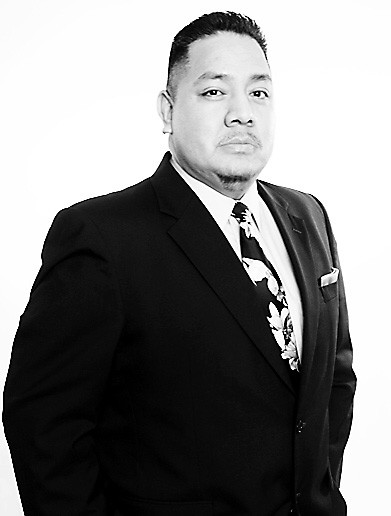Since 1978, American Indian tribes have been unable to prosecute non-American Indians for crimes. Now, Alfred Urbina and his team will lead the Pascua Yaqui Tribe of Arizona in doing just that.
On Feb. 6, the Department of Justice announced that three tribes were selected to be part of a pilot project that allows them to prosecute non-American Indians who had committed crimes of domestic violence against American Indian women. This pilot project is a part of the 2013 Violence Against Women Act.
Under VAWA, selected tribes can prosecute non-American Indians in cases of domestic violence and violations of orders of protection, said Urbina, chief prosecutor for the Pascua Yaqui Tribe of Arizona and a UA alumnus who completed the Indigenous Peoples Law and Policy program and studied criminal justice at the James E. Rogers College of Law.
Only three tribes in the U.S. were chosen to participate in the pilot project. The Pascua Yaqui Tribe in Arizona was chosen because it had already implemented most of the requirements needed for tribes to carry out the prosecution of non-American Indians, Urbina said.
These requirements include a guaranteed public defender for anyone who was arrested, a court system that records everything that goes on in court, judges who graduated from law school and are bar certified in the state of Arizona and more, Urbina said.
Melissa Tatum, director of the Indigenous Peoples Law and Policy Program at the James E. Rogers College of Law and research professor of law, said a whole host of procedural regulations have to be followed that require a lot of time and money to put together, and that the Pascua Yaqui Tribe had already done all of that work.
Feb. 20 was the first day the Pascua Yaqui Tribe began the prosecution process for reported incidents of domestic violence.
“There’s a total of nine cases thus far that include non-Indian folks who are in relationships with tribal members, married or living with them on the reservation,” Urbina said.
Someone who has a child with or is in an intimate relationship with a tribal member will be able to be prosecuted as well, Urbina said.
Tatum said she believes that this is a huge step forward in protecting American Indian women.
Tatum has been following VAWA and interpreting it in tribal context since 2000, and has been training police officers for the last 15 years. Tatum also played a key role in training law enforcement agents in the Pascua Yaqui Tribe on how they should handle arresting a non-American Indian on tribal territory.
“It was a joint effort between Urbina and I; they had the local expertise, and I brought in my expertise to adapt,” Tatum said. “They’ve invested, over the last several years, time, effort and money into a top-notch criminal justice system.”
Training for law enforcement included police, the department, victim services, the attorney general’s office, the prosecutor’s office, court staff and the public defender’s office, Tatum said.
“I have been working on this topic for 15 years of my life and teaching it for 20 years,” Tatum said. “I never, ever thought I would be in front of a room of tribal police training them on how to arrest non-Indians. This is groundbreaking. I got the chills the first time I was in the classroom training the police.”
One in three American Indian women will be raped or sexually assaulted in their lifetime by non-Native American men, and in Alaska that rate is two in three, Tatum said. Most of the violence against American Indian women is perpetrated by non-Native American men, and tribes couldn’t protect citizens being assaulted.
Knowing that you have this resource to protect yourself and start the process of getting out of that relationship is huge, Urbina said.
“They no longer have to live in fear,” Urbina said. “Can you imagine waking up every morning wondering if you’re going to get beat today, or if someone gets drunk and they are going to assault you?”
Urbina said he believes his tribe is leading the way and hopes the pilot project can be reproduced so other tribes can follow it.
“It’s bittersweet, because there’s over 500 tribes that aren’t pilot tribes, and they’re not prosecuting or arresting for these crimes,” Urbina said.








